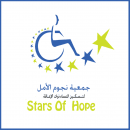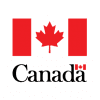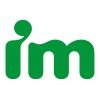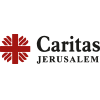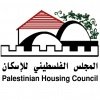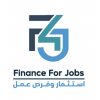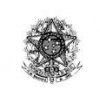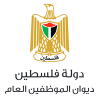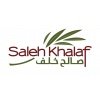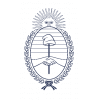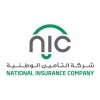National Risk Management System
Organization Name Stars of Hope Society for the empowerment of women with disabilities
Address Ramallah – Palestine
Project Name National Risk Management System
Deadline for question 14 September 2022
Submission deadline 15 September 2022
Project Duration 41 weeks
Background and Context
Persons with disabilities are among the most marginalized and disadvantaged social segments in the world, where they face social isolation and deprivation of active participation in their communities.
Persons with disabilities constitute 5.8 % of the total population in Palestine, 5.0% in the West Bank and 6.8% in Gaza Strip, PCBS 2017, which emphasizes the need for mainstreaming disability in public policies and the enforcement of the rights of persons with disabilities stated in the UNCRPD and other international conventions which Palestine acceded to.
Persons with disabilities and other at-risk groups are more likely to be left behind or abandoned during evacuation in disasters and conflicts due to a lack of preparation and planning as well as inaccessible facilities and services. Persons with disabilities are excluded from disaster preparedness measures, and are invisible when it comes to community and risk mapping or evacuation planning. They find it harder to access shelters and safe spaces due to environmental and attitudinal barriers or protection risks, and receive inadequate or inappropriate relief and support.
During the COVID-19 Pandemic, the Palestinian government declared the state of emergency and designed an Emergency Response Plan for handling the effects of COVID-19 outbreak, which included the closure of schools, universities, restaurants and other public facilities, prevention of gatherings up to the complete lock down. The Ministry of Social Development also put in place a Rapid Response Plan for the social protection sector, focusing on certain priorities for rapid intervention to protect poor and marginalized groups in order to prevent deterioration of their conditions and ensure their food and health security. Besides, the Ministry of Women's Affairs formed a GBV crisis management committee to work closely with other emergency committees formed by other ministries and governorates to coordinate and facilitate gender mainstreaming in all relevant emergency actions
However, despite the response plans and intentions announced by the government and civil society organizations (CSOs) to target and include persons with disabilities, within the relevant COVID19 risk management / reduction interventions, there were no specific plans nor interventions or services tailored to respond to the needs and requirements of persons with disabilities, women included. Although a number of persons with disabilities benefited from the emergency interventions, yet they were mostly targeted based on their poverty level not their disability.
Due to this fundamental exclusion of persons with disabilities, particularly women, from relevant disaster Risk Reduction interventions, at state and non-state levels, persons with disabilities were left behind to face the multifaceted negative health and socio-economic effects and implications caused by different crises and disasters. For this purpose, Stars of Hope Society (SHS) took the initiative to launch this project to promote Disability Inclusive Disaster Risk Reduction (DiDRR), to contribute to the elimination of negative impacts of disasters on persons with disabilities - specially on women and girls with disabilities- in the West Bank and Gaza Strip, by assessing their needs and priorities, building their resilience, advocating for disability inclusive disaster risk reduction policies and strategies and facilitating the access of persons with disabilities to the needed emergency and support services.
Purpose and Scope of the Consultancy
The purpose of this assignment is to analyze, design, develop, deploy and launch a National Risk Management System for NDRMC. The Project aims to enable the NDRMC to run a robust disaster risk management system on a national level, collect updated information from all agencies, and generate reports based on the NDRMC needs and as per Sendai framework format and support decision-making through a set of KPIs.
The tenderer (the team leader in the case of firms) must:
Have at least a Bachelor's degree in business management/administration, management information system, or related fields, complemented by proven extensive experience in risk management for large organizations.
Have a minimum of 5 years of professional experience related to the assignment.
Be fluent in English and Arabic, both oral and written.
Preferably have good knowledge and experience on disability inclusion-related issues.
Preferably know the service provision context for women with disabilities.
Preferably having experience in working directly with people with disabilities will be an asset.
Application procedures:
Submission of tenders
The deadline for submission of tenders is on Thursday, 15 September 2022at 4:00 pm and must be submitted exclusively to SHS as follows:
1. Hand delivered directly to SHS office in sealed envelopes and must be stamped and signed by the offeror’s authorized representative to the following address;
2. Stars of Hope Society (SHS) office is located in Ramallah, Al-Mahsiri Building1, 3rd floor.
3. Tenders submitted by any other means will not be considered. Tenders must be submitted using the double envelope system, i.e., in an outer envelope containing two separate, sealed envelopes “Envelope A – Technical offer” and the other “Envelope B – Financial offer.”
4. All parts of tenders other than the financial offer must be submitted in Envelope A.
to request the full terms of reference for the assignment please click HERE
“Stars of Hope Society” is committed to achieving workforce diversity in terms of gender, nationality and culture. Individuals from minority groups, indigenous groups and persons with disabilities are equally encouraged to apply. All applications will be treated with the strictest confidence.




